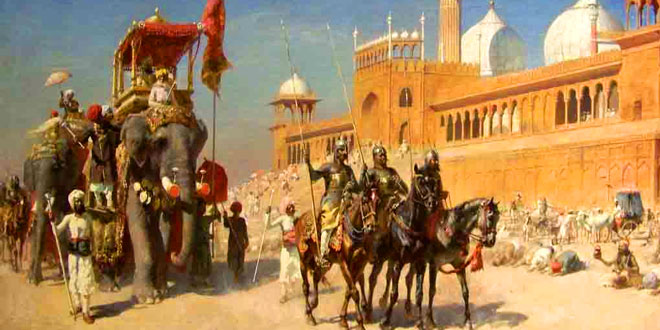Question: What do you understand by periodization in history?
Answer: Periodization in history has changed over time. We divide history into periods on the basis of something which has had a profound impact on the way we live. For e.g.- some historians say that the change from the ancient to the medieval period occurred with the arrival of Turks in India. Similarly, the change from medieval to modern occurred with the arrival of the British on the shores of India.
Question: Why do interpretations differ in history? Give an example to support your answer.
Answer: Interpretations differ in history as individuals and groups interpret events differently. For example, the British wanted to downplay the popular nature of the Revolt of 1857. So they termed it a ‘sepoy mutiny’, thereby implying that only some sepoys of the English East India Company revolted on the issue of greased cartridge. The masses, they say, were left untouched by this sequence of events. Indian historians, however, treat it differently. Contemporary records also support them. They tell us that the common people played a vital part in the events and the real reason for this uprising was the exploitative nature of British rule. The revolt would have happened in any case. The fact that the sepoys and the common people were ready to use the same cartridges to expel the British prove this. So there are generally differing opinions and interpretations in history. It is for us to get to the bottom and dig out the truth. For this, we should not rely on only one source but we should also look at other sources.
Question: Write various sources used for explaining time period in history.
Answer: The literary sources for the period are many and varied. There are original documents like government reports, administrative records:
- Official records: The Mughals introduced the culture of recording everything. This was furthered and perfected by the British. Every administrative decision was recorded and carefully preserved. Many of the official records of this period are now preserved in the National Archives of India.
- Survey reports: Population surveys, revenue surveys, land surveys and many other types of surveys were conducted. The British made a large number of topographic maps. Census operations also began.
Question: Discuss some general characteristics of colonial periods of the Indian history.
Answer:
- The British East India came as a trading company to India. Since 1600 the company remained busy in commercial activities. But later on it conquered India and established the British rule in India.
- The British Subjugated local Nawabs and rulers. They established control over the economy and society, collected revenue to meet all their expenses, brought the goods.
- The British exploited the Indians and its all resources during colonial period. They tired to purchase all goods and production at low prices and exported different articles to England.
- During this period culture of India was effected greatly. several types of changes were brought bu the British rule. These changes were felt and seen on values and tastes, customs and practices.
 Class Notes NCERT Solutions for CBSE Students
Class Notes NCERT Solutions for CBSE Students



It’s very much interested